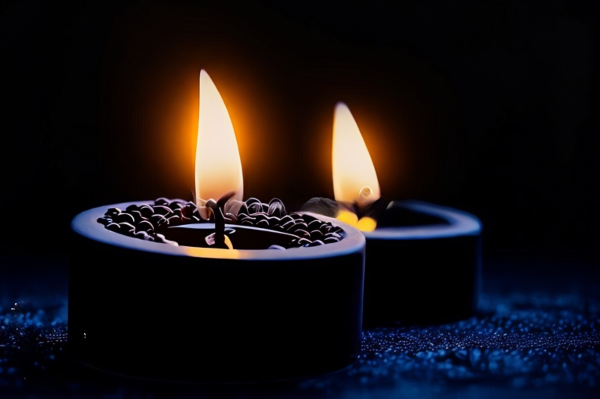The arrogance of the defeated, and the memory that burns back
-6863e54d8c33a.jpeg)
Reading Sajeeb Wazed’s recent Facebook post–where he offers forgiveness to those who "mistakenly" participated in the “so-called July riots”--I was struck not by his “magnanimity”, but by the chilling familiarity of his tone.
It echoed, almost verbatim, the rhetoric
used by Brigadier Sadullah of the Pakistan Army in 1971. For those unfamiliar,
Brigadier Sadullah’s reflections were published in a memoir titled From East
Pakistan to Bangladesh.
Posted to East Pakistan at the height of
the Liberation War, Sadullah recorded his first impressions upon arriving in
what was then a war-ravaged, defiant Bangladesh.
Passing by a high school, he remarked
upon seeing a Shaheed Minar–our national symbol of sacrifice for the Bengali
language.
“Let me describe what this thing is,”
Sadullah wrote with colonial derision. “During some language movement, two or
three students in Dhaka apparently died, and ever since then, Shaheed Minars,
like Hindu temples, have sprung up in Bengali schools… Every morning,
circumambulating the minar is a ritual. You have to participate barefoot, with
flowers in hand.”
It was a lie, of course. You and I, who
have lived in Bangladesh for over five decades, know there is no ritual
procession. And yet, this fabrication served a purpose: to paint Bengalis as
other, as Hindus, as heretics, as expendable.
The same narrative that justified
genocide.
In 1971, the Pakistani state–abetted by
its local collaborators–slaughtered our people and branded it “restoring
order.” And when the resistance triumphed, driving them out like rats from a
burning ship, the tone shifted, but the patronizing superiority remained.
Sadullah, reflecting post-defeat, wrote
that while many Bengalis joined the language movement due to “Hindu” or “Indian
instigation,” most were devout Muslims at heart and later realized their
mistake.
The mistake, of course, being their
insistence on dignity, culture, and self-determination.
Fast forward to 2024, and here we are
again. After state-sponsored violence against unarmed civilians, after the
silencing of dissent and the criminalization of protest, we’re told it was all
just a misunderstanding.
Sajeeb Wazed, heir apparent to a fallen
disgraced dynasty, informs us that those who once opposed his family’s rule
were merely misled. But now, conveniently, they see the light.
How convenient. How familiar.
Two attempts at erasing the Bengali
spirit–one by a “foreign” occupier, one by “domestic” power–but the same
script. The same dismissal of protest as ignorance. The same branding of
national symbols as threats.
The same willingness to forgive, once resistance has been crushed. And we are being asked not just to forget, but to be grateful for our pardon.

The flames of remembrance
We must remember instead. Because history
does not repeat itself by accident. It is repeated by those who believe they
can get away with it.
After their defeat in 1971, the collaborators of Pakistan did not disappear–they simply rebranded.
Ghulam Azam, the Razakar chieftain, fled to Pakistan, then London, where he established the “Pakistan Restoration Committee.” His mission was to reverse history. He lobbied governments across the globe, pleaded with foreign leaders not to recognize Bangladesh, and worked tirelessly to undo our independence.
Today, we are witnessing the same treachery–just draped in a different flag.
Top leaders of the ruling Awami League, now fugitives abroad, continue to refer to Sheikh Hasina as “Prime Minister,” long after her political legitimacy has crumbled under the weight of repression and bloodshed.
They dispatch letters to foreign capitals, not unlike Ghulam Azam did, urging the international community to reject the current government.
Even more brazenly, some are openly courting foreign military intervention. I watched Barrister Nijhum Majumder appear on Indian television suggesting that India should “intervene” in Bangladesh. Imran H. Sarkar, the former face of the Gonojagoron Moncho, has echoed similar appeals.
It would be laughable–if it weren’t so lethal.
And as if to mimic their ideological ancestors step for step, they’ve now taken up the business of manipulating martyrdom. In 1971, Jamaat-e-Islami waged a campaign to reduce the number of Bengali martyrs to less than fifty thousand–while inflating the number of Bihari deaths to over three hundred thousand.
The irony? They cite the work of Rudolph
Rummel, who also estimated that three million Bengalis were killed in 1971–a
figure they conveniently omit.

A failing playbook
The Awami League plays the same numbers game today. First, they claim a hundred police officers died during the July unrest. Then, with straight faces, they push that figure to three thousand.
Meanwhile, not a word about the killings they orchestrated. Not a word about the thousands of documented videos–circulating freely online–showing their men beating, torturing, and killing unarmed civilians.
In those clips, they don’t look afraid. They look gleeful. They laugh. They pose. They desecrate.
Like Jamaat, they clutch to the fragments of one narrative, ignoring the rest. The Awami League cites the UN’s findings about post-August 5th violence–but ignores the central horror of the report: the systematic murder of unarmed civilians, including students.
They don’t want to talk about Nafiz, the young boy whose lifeless body was photographed slumped on a rickshaw and made the cover of the UN dossier.
Tell me–was Nafiz a police officer? Was he even political?
The truth is far harder to digest. Time and again, this land has been soaked with the blood of its own children–not by foreign invaders, but by the very hands that claimed to protect them. Ghulam Azam may be dead, but his legacy lives on–in new uniforms, under new slogans, wearing new colors.
And still, the cries of Mother Bengal echo unanswered.
And now July returns. Not as a date on a calendar, but as an open wound. Twelve months later, the grief still hangs in the air like tear gas that never cleared. The hopes that rose last year have been crushed under boots.
What remains is a heavy silence, punctuated by despair–and horror.
The daughter of a July martyr was raped after visiting her father’s grave. Days later, she ended her life. In Muradnagar, a minority woman was stripped, tortured, and humiliated in broad daylight.
Across the country, mobs swelled–killing men in broad daylight with sticks and slogans. This is what impunity looks like when it becomes policy.
Where do we store this much shame? What closet in the national conscience can contain this many ghosts?
Yes, we have known sorrow before. We have bowed our heads before. But even beneath the filth and fear, July remains ours. That truth cannot be surrendered–not to tyrants, not to revisionists, not to the amnesiacs of power.
—
Arif Rahman is a writer

